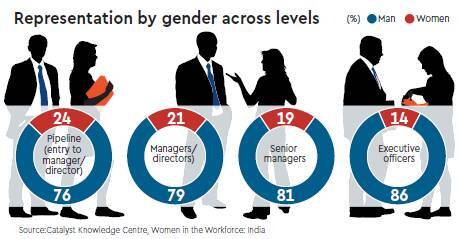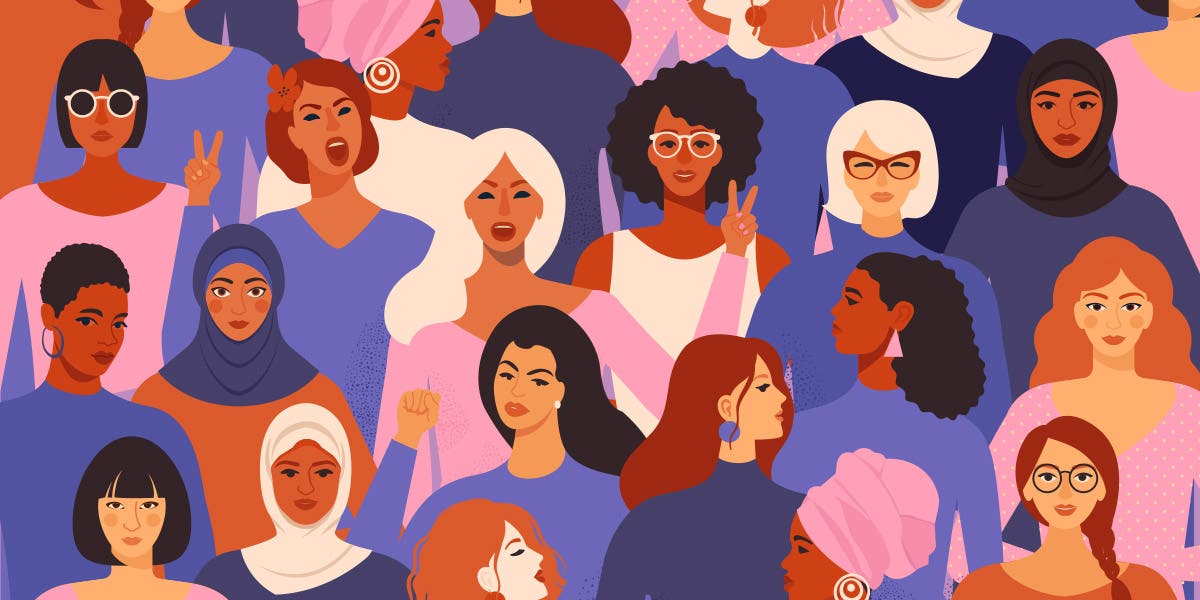Our society has conditioned us to associate masculinity with leadership which is one of the prime reasons women are regarded unfit for many leadership positions.
The data published by UN Women, shows that 119 countries have never had a women leader as a head of state or government, and that at such a rate, achieving gender equality will not be possible for the top positions until the next 130 years. The Egon Zehnder Global Diversity Report 2020 demonstrates that women currently hold 17 per cent of corporate India’s board positions. At the same time, women fall behind when it comes to leadership roles on company boards. According to the same report, only 11 per cent of committee chairs are held by women in India, while the number stands at 27.3 per cent globally.

Board positions held by women are increasing because of the Companies Act’s mandate which made the representation of women mandatory in public companies. Still, the leadership roles held by women are not seeing the same rise.
It becomes even more difficult for women belonging to lower castes and LGBTQ+ community to break through social constructs and become a leader.
It becomes even more difficult for women belonging to lower castes and LGBTQ+ community to break through social constructs and become a leader. In the corporate sector (private sector), there is no mandate for women belonging to minority groups, so the representation is almost non-existent. It is thought that all women suffer the same disadvantages, but for women belonging to Dalit, Bahujan, Adivasi, Nomadic and queer community, the already existing challenges are coupled with casteism and prejudice.
Even though these women from get jobs in the private sector, there has been discrimination regarding leadership positions, pay, job security, etc. Also, there is no reliable source available for data about women representation from lower castes, minority groups, and the LGBTQ+ community; the statistical silence suggests a lot about the numbers.
Also read: These Four Grassroots Women Leaders Travelled Across the Country for Land Rights
No number of regulations and quotas will be enough to increase cis/trans/queer women from socially and regionally disadvantaged backgrounds in leadership roles unless we talk about social evils like caste and patriarchy. Patriarchy compels women to change themselves and make them uncomfortable for who they are before they can call themselves a leader.
Women leaders are still perceived as too delicate and gullible. In an equality matters article by BBC, Alice Eagly, a psychologist at Northwestern University in Evanston, Illinois, said that “The stereotype is that women aren’t agentic,” i.e., they are seen as timid and indecisive. Women are thought to be less bold because they are associated with being emotional and high-strung; in other words, these are the traits unsuitable for a leader to possess.
Being authoritative and practical has always been associated with masculinity, and since women are labelled to be more docile, sensitive, irrational, they are considered unfit for leadership roles.
Being authoritative and practical has always been associated with masculinity, and since women are labelled to be more docile, sensitive, irrational, they are considered unfit for leadership roles. Whereas in the eyes of society, men automatically make better leaders. It is social conditioning and just one of the many ways to make women believe that they do not deserve a position. Being soft-spoken does not make you weak or any less of a leader; it makes you only more of a human. Being soft-spoken serves you to stay calm and handle situations without disrupting the team’s morale. Having a heart and knowing everyone has one makes you better at understanding people, empathising with their wants, and helping the team achieve their goals.
Also read: Five Historical Women Leaders From North East India
An article by Economics Times, states that sensitivity is important and how a higher emotional quotient has helped workplaces progress. We see women leaders in our everyday lives, who are sensitive and bold, tough and soft, who are the best at what they do and are still learning. Qualities/Traits are not exclusive to each other. Society needs to stop rejecting women from having leadership positions just because they are sensitive.
Forbes article – ‘Women Business Leaders’ Why so few and how to have more?”; note that women leaders can be more empathetic, paying attention to the needs of the whole team and creating a better environment and a successful company. Research by Mckinsey shows that a company can perform 50 per cent better when there is sufficient representation of women at the top. The study also found that women are more likely to support gender and racial equity, and undertake employee-friendly policies, creating a healthy work culture.
Leadership qualities have nothing to do with gender, and they evolve through experiences. Different leaders possess varied leadership styles, and no leadership style is better than the other. The most suitable leadership style should be selected, keeping in mind the group dynamics and prevailing circumstances. A good leader is the one who knows that he/she is dealing with real people, not machines. Who can encourage women to not look at their femininity as a hurdle, instead teach them to embrace it.
Also read: Women Bosses In Cinema: Positive Portrayal Of Female Leadership Is Finally Here
When trans/cis/queer women leaders demonstrate to the world that they can lead the organisations and countries towards success, they change many people’s perception of their leadership effectiveness. But only a few women in leadership is not enough because it still gives out a message that it is an exception, but we need to strive to make it a norm.
Lipi is an economics student, a kathak dancer, and a spoken word poet. I strive to inspire and make people aware of the possibilities and realities through her writings. Words, movements, and paints are the tools that aid her to sail through life. Also, she strongly believes that ice-cream is the best invention by mankind. You can find her at Instagram, Twitter, Facebook and LinkedIn.
Featured Image Source: Delphinium Books





This is so well researched and written! Kudos to a more inclusive world ahead.